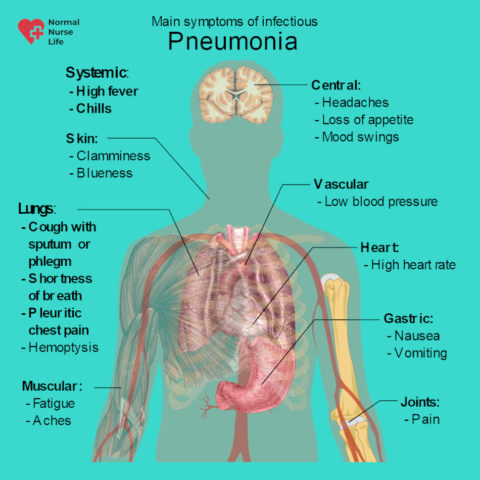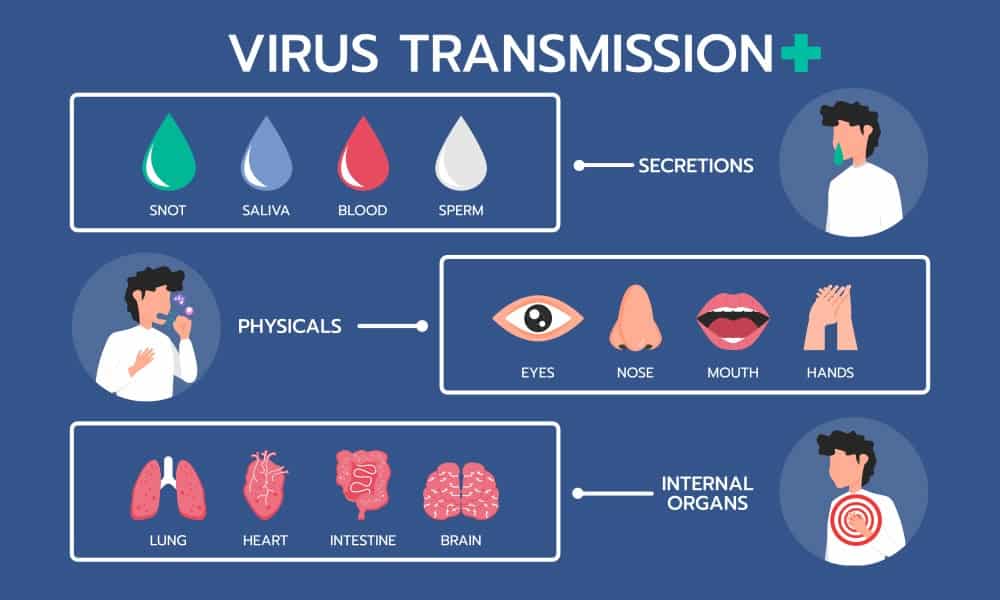
Pneumonia symptoms vary among adults. Children and babies typically have more vague signs. They may have a fever and appear lethargic, and their breathing might be noisy. They may have difficulty feeding or make a grunting sound. The most common symptoms in older people include reduced mental awareness and confusion. The skin shade can turn blue, indicating that the lungs are not delivering oxygen properly. If the condition is not treated, it can progress into a life-threatening illness.
While the symptoms of pneumonia vary between individuals, everyone should seek medical treatment if they are suffering from these symptoms. Newborns and infants may show no signs at all, but adults with a weakened immune system may exhibit more severe symptoms. Those who are over the age of 65 may experience a sudden change in mental awareness. In rare cases, pneumonia may also lead to bacterialemia, which occurs when bacteria move into the bloodstream.
If you suspect you have pneumonia, a doctor will first try to diagnose the cause of your symptoms. Pulse oximetry is a test that measures the amount of oxygen in your blood. Because bacterial pneumonia is caused by the growth of bacteria, you’ll have a higher chance of getting it again, so it is important to take antibiotics as directed by your doctor. If you fail to do this, the bacteria in your body may grow resistant to the antibiotics you’ve been taking.
The main symptom of pneumonia is fever and cough. If these symptoms are present, you are most likely suffering from bacterial pneumonia. You must wear a mask to prevent contact with sick people. In addition to wearing a mask, you should get a flu shot every year to stay healthy. Colds can develop into bacterial pneumonia, so for maximum protection against these diseases, it is essential to get an annual flu shot.

If you are an adult, you should see your doctor if you have pneumonia. It is important that the doctor examines you. It is important to remember that people often develop bacterial infections while they are still young. While some infections may have minimal symptoms, others can be life-threatening, especially in the elderly. However, it’s important to follow your doctor’s instructions and the recommendations for pneumonia prevention on the health website https://healthproductsworlwide.com/ if you experience symptoms.
If symptoms persist, a doctor should be consulted. The doctor can check the level of oxygen in the blood and determine the source of the infection. If the problem is bacterial, you will need to take antibiotics, which will reduce the chance of developing a bacterial infection. Once you have found a diagnosis, you can start a treatment plan. If you are a hospital patient, your doctors will prescribe antibiotics for you.
If you’re a newborn, you may not have any pneumonia symptoms, while an adult might have a few. The symptoms of pneumonia in infants and young children will depend on the age and gender of the patient. Some people may have more or less severe symptoms, but some will only experience mild ones. If your symptoms are serious, you’ll need to visit a doctor. Your doctor will prescribe antibiotics for you and monitor your health carefully.
Symptoms of pneumonia vary from person to person. Infants and newborns usually don’t have any symptoms, while adults may be more sensitive to it. Although symptoms of pneumonia are similar in most cases, they can differ from person to person. Some individuals may have milder symptoms, while others may have more severe ones. If you have any of the following signs, you’ll need to see a doctor for an evaluation. Your doctor will give you advice on how to treat the illness.
If you have any of these pneumonia symptoms, it’s important to see a doctor. A physician will want to know whether you have any other medical conditions, so that he or she can give you a treatment plan that works best for you. In addition to checking your blood, a doctor will check your lungs for abnormal sounds. He or she will also look for signs of inflammation in the chest. This is essential for determining the exact type of pneumonia you have.